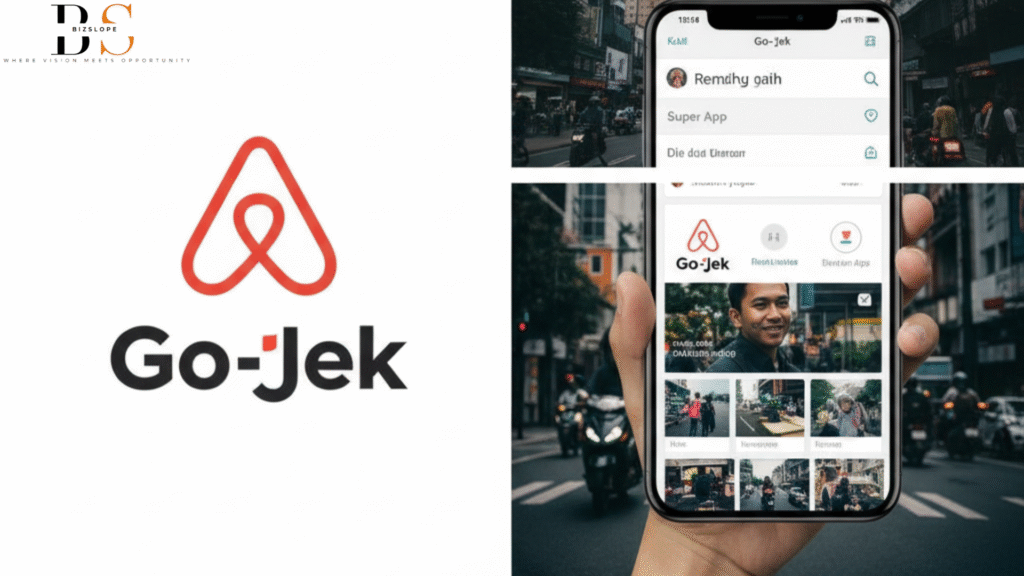In the chaotic, vibrant, and densely populated urban centers of Indonesia, daily life presents a unique set of challenges, particularly when it comes to transportation and services. It was amidst this complex environment that Go-Jek was born in 2010, initially as a modest call center for motorcycle taxis, or ‘ojeks’. What began as a simple solution to traffic woes would, in less than a decade, transform into a technological behemoth, a “super app” that orchestrates virtually every aspect of urban life for millions across Southeast Asia. Go-Jek’s story is a compelling testament to the power of understanding local market needs deeply and leveraging technology to solve everyday problems on an epic scale.
The Origin: Navigating Jakarta’s Labyrinth
Nadiem Makarim, a Harvard Business School graduate, founded Go-Jek after experiencing firsthand the inefficiencies of Jakarta’s informal ojek system. While these motorcycle taxis were a lifeline for navigating the city’s notorious traffic, finding a reliable, safe, and fairly priced ride was often a gamble. Makarim saw an opportunity to bring order and efficiency to this vital, yet unorganized, sector. The initial iteration was humble: a call center where customers could book an ojek, and Go-Jek would dispatch a driver from its small, managed fleet. It was a manual process, but it laid the groundwork for a more technologically advanced future.
For five years, Go-Jek quietly built its network and understood the nuances of its market, gathering invaluable data and insights into consumer behavior and driver needs. This deep immersion into the local ecosystem proved to be a foundational advantage.
The App Launch: The Catalyst for Hyper-Growth
The pivotal moment arrived in 2015 when Go-Jek launched its mobile app. This was the true game-changer. Suddenly, the entire process—from booking a ride to tracking the driver and making payments—was streamlined onto a smartphone. This digital transformation addressed critical pain points: it made motorcycle taxis safer, more reliable, and transparently priced. The app quickly gained traction among Jakarta’s tech-savvy population, eager for more efficient urban navigation.
However, Makarim and his team understood that the journey wouldn’t stop at ride-hailing. They recognized that the same network of drivers, equipped with smartphones and navigating the city, could be leveraged for a myriad of other services. This foresight led to an aggressive and rapid expansion of their offerings, propelling Go-Jek towards its “super app” status.
Building the Super App: More Than Just Rides
Go-Jek’s true innovation lay in its rapid diversification. Leveraging its strong foundation in logistics and its extensive driver network, the company systematically rolled out new services that addressed other critical consumer needs:
- Go-Food: Revolutionizing food delivery, connecting countless local restaurants with hungry customers and empowering small businesses.
- Go-Pay: A digital payments system that became a cornerstone of its ecosystem, enabling cashless transactions across all Go-Jek services and expanding into broader merchant acceptance.
- Go-Send: An on-demand courier service for packages, tapping into the urgent delivery needs of individuals and businesses.
- Go-Mart & Go-Shop: Enabling grocery and personal shopper services, bringing convenience directly to consumers’ doors.
- Go-Massage & Go-Clean: Even extending into personal care and home services, further embedding the app into daily routines.
This aggressive, multi-service strategy created a powerful network effect. The more services Go-Jek offered, the more indispensable it became to its users. Each new service attracted more users, which in turn attracted more drivers and merchants, creating a robust and resilient ecosystem.
Local Understanding and Social Impact
A significant aspect of Go-Jek’s success is its deep understanding of the local Indonesian context. Unlike many Silicon Valley imports, Go-Jek didn’t just impose a global model; it adapted and innovated based on specific local challenges and cultural nuances. It recognized the importance of the informal economy and empowered millions of drivers and small business owners, providing them with stable income and digital tools they previously lacked. This focus on social impact, alongside business growth, resonated deeply within Indonesia and the broader Southeast Asian region.
Go-Jek’s journey from a humble call center to a dominant super app is a masterclass in market-specific innovation, aggressive diversification, and the relentless pursuit of solving real-world problems. It transformed the lives of millions, not only by offering convenience but also by creating economic opportunities and driving digital inclusion in a rapidly developing economy.



